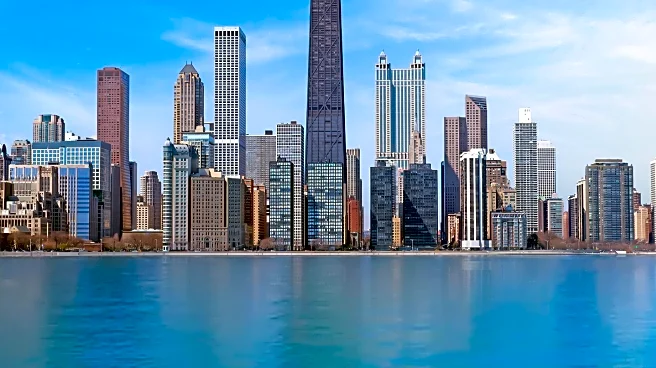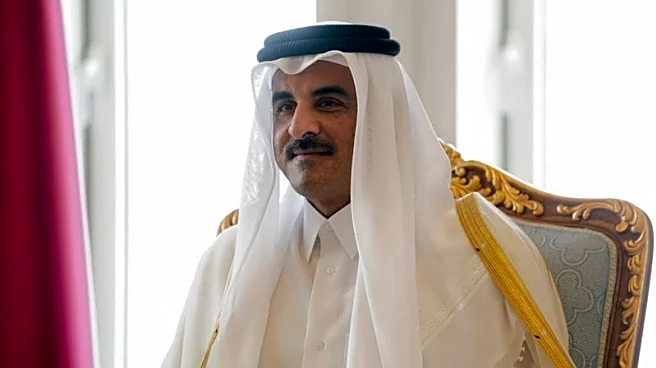What is the story about?
What's Happening?
The Chicago Architecture Biennial, titled 'SHIFT: Architecture in Times of Radical Change,' is underway, marking its sixth edition and the 10th anniversary of the inaugural event. Curated by Florencia Rodriguez, the biennial features a range of installations and ideas focused on architecture's role in contemporary challenges. The event is less ambitious than previous iterations, with scaled-back exhibits at the Chicago Cultural Center. Key installations include Kwong Von Glinow's Forget-Me-Not Pavilion, Jacqueline Kiyomi Gork's Variations in Mass Nos. 5, 6, 7, and Studio Sean Canty's Regal Reverb. The biennial also extends to other locations such as the Graham Foundation and the Museum of Science and Industry, showcasing diverse themes and artistic expressions.
Why It's Important?
The biennial's focus on 'radical change' reflects the evolving nature of architecture in response to societal shifts. By exploring innovative designs and concepts, the event highlights architecture's potential to address contemporary issues such as urban development, sustainability, and community engagement. The installations offer insights into how architectural practices can adapt to changing environments and cultural dynamics. This biennial serves as a platform for architects and artists to challenge traditional boundaries and propose new solutions, influencing future architectural trends and public policy.
What's Next?
The biennial is expected to continue influencing architectural discourse and practice, encouraging architects to rethink their approaches in light of global challenges. As the event progresses, it may inspire further collaborations and projects that integrate art, technology, and community needs. Stakeholders, including urban planners and policymakers, might consider the ideas presented at the biennial when developing future urban strategies. The biennial's impact could extend beyond Chicago, shaping architectural conversations and innovations worldwide.
Beyond the Headlines
The biennial's exploration of 'radical change' in architecture raises questions about the ethical and cultural implications of architectural practices. It challenges architects to consider the social responsibilities of their designs and the long-term effects on communities. The event also prompts discussions on the role of architecture in preserving cultural heritage while embracing modernity. As architects navigate these complexities, the biennial encourages a deeper understanding of architecture's transformative power.















